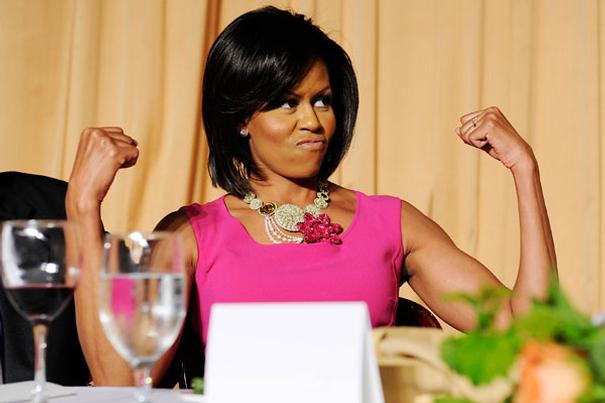Monday, February 24, 2014
Not Your Strong Black Woman Anymore
Strong Black Woman enthusiasts aren't always obvious. Sometimes it is covert. But they reveal themselves by never believing that you are tired or sad or might need assistance. Or believing that you have everything under control at all times. They are the people who say there are "no excuses" and that includes being physically ill, depressed, overwhelmed, or just not in the mood to be busy.
It is a given that Black women will be treated like this by people who are not Black women. But oftentimes we treat each other in this manner as well. To me this has been the most hurtful because you can easily expect to be treated like a mule or an impervious superwoman by outsiders, but it is easy to expect compassion from one's own.
The fact of internalized oppression complicates this. Internalized racism and sexism encourages us to think that we do not deserve normal human considerations that many others take for granted.
For this reason, Black women who consider themselves to be Strong Black Women often put that label on other Black women. Oftentimes the first person to call you out for not being a Strong Black Woman will be another Black woman. Because if they don't believe they have the right to be weak, in need of help or time to themselves, they will naturally deny those things to other Black women.
It takes time to unravel these problematic notions of self.
It has been difficult for me to disavow the Strong Black Woman label. Not because I want to be seen as strong. But because I've always wanted to be viewed as an authentic Black woman. And it so happens that taking time to oneself and not always having it together is the opposite of what is expected for a "real" Black woman.
A "real" Black woman never experiences sadness or depression. She is always doing for others and never doing for herself. She allows non-Black women to use her for their own gain. We idolize the continuous struggle of surviving poverty, emotional and physical abuse, and disappointment. We disparage anything else as being mythical, facetious, and white.
But authenticity is less important to me than wholeness and emotional health. It is only by pushing the narrative of what it means to be "real" or "authentic" that allows us to have healthier views of what it means to be a Black woman. It makes room for a vision of Black womanhood that encompasses self-care and self-directed tenderness.
We need to practice having compassion towards ourselves. Struggle is so normalized in many of our lives due to various intersections of oppression, that we do not think that there are ways in which we can forgo internalizing that this is what we deserve. We forget that we deserve and should continue to expect compassion and emotional consideration even if it is not often extended.
Once we as Black women learn self-directed compassion then it will be easier to be compassionate towards our sisters. Once we are compassionate towards other Black women we start a whole new love ethic of empowerment that will spill over economically and politically.
In that sense, I see my resistance to the Strong Black Woman label as revolutionary and as activism. It is a reclamation of humanity. It is taking Zora Neale Hurston's wise observation that Black women are the mules of the world and saying not me, at least anymore.
Also See: I Am Whole, Not Perfect: Reflections on Black Girl Perfectionism
Subscribe to:
Post Comments (Atom)


Best wishes here!
ReplyDeleteThe NO.1 interracial dating site for Black Women Looking For White Men. Love is color blind! Don’t never give up!
So nice Interracial Dating Site!